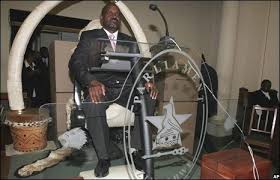
ZIMBABWE’S parliament voted by two thirds majority to approve the Constitution of Zimbabwe Amendment 19 Bill on Thursday that will pave the way for a unity government next week.
The 210-member House of Assembly voted by 184 to zero in favour of the amendment which will create the new position of prime minister, a post that opposition leader Morgan Tsvangirai is set to assume next Wednesday. The Bill only required 140 votes to pass.
The Bill was expected to be rushed through the Senate before being signed into law by President Robert Mugabe later Thursday.
Under the unity accord, Mugabe will remain as head of state, and the two parties will divide the cabinet posts.
Approval of the amendments marked a key step toward forming the government that was agreed to on September 15 but left in limbo amid fractious negotiations on how exactly to divide power between the parties.
Tendai Biti, the lead negotiator for Tsvangirai's Movement for Democratic Change (MDC), said it was a "miracle" that the parties had managed to agree on the unity accord at all.
"Everything has happened on the negotiating table other than physical confrontation. It is a miracle that we are here," he said at the start of the session before the amendment was adopted.
"We go into this government knowing that for this to work there has to be commitment," he said. "It is important to establish trust from the word go."
In elections last March the MDC seized a parliamentary majority for the first time and Tsvangirai defeated Mugabe in a first-round presidential vote.
The result sparked a wave of political violence, which Amnesty International says left more than 180 dead and targeted mainly MDC supporters.
Hoping to quell the violence, Tsvangirai pulled out of a runoff election in June, and Mugabe declared a one-sided 85 percent landslide victory denounced by the international community.
South Africa has mediated between the parties. Months of bickering over the division of cabinet posts and control of security forces ended only last week, after the rivals agreed to a compromise backed by regional leaders.
But they have still struggled to agree on who will control key cabinet posts, with Tsvangirai jetting to Cape Town on Wednesday for last-minute talks with South African President Kgalema Motlanthe.
Still, the bitterness remains clear.
"It has been a long, frustrating, quarrelsome journey characterised by animosity and name-calling, but notwithstanding this, what is important is we have reached this path," Mugabe's lead negotiator Patrick Chinamasa said at the opening of the session.
African leaders, and especially South Africa, are placing all their bets on this deal working. At the African Union summit in Ethiopia this week, they called for on the European Union and the United States to lift sanctions on Mugabe and his inner circle.
But western countries remain cautious, saying they want to see clear signs of progress before lifting the travel ban and asset freeze on Mugabe and his aides.
"While we underline that this is a positive development, it does not itself spell the end of the political, economic and humanitarian crises Zimbabwe finds itself in," EU ambassador to South Africa, Lodewijk Briet said in a statement.
"This first step towards normalising the situation in Zimbabwe must be underpinned by clear confidence building measures by the new government," he added, a sentiment that has been echoed in Washington.
Amid Zimbabwe's political paralysis, the economic and humanitarian crisis has deepened. Inflation, last estimated at 231 million percent in July, is now believed many times higher.
Unemployment is at 94 percent, while seven million Zimbabweans -- more than half the population -- need emergency food aid. - Staff Reporter/AFP
No comments:
Post a Comment